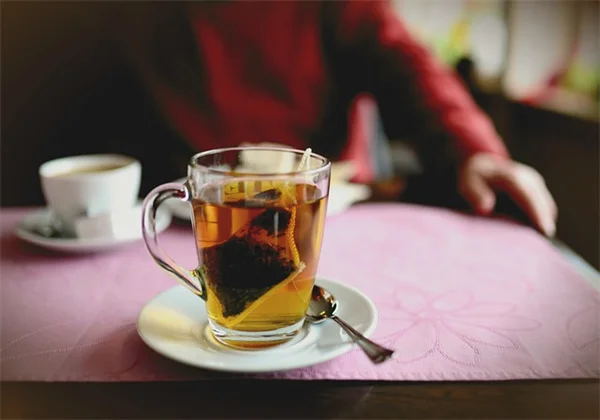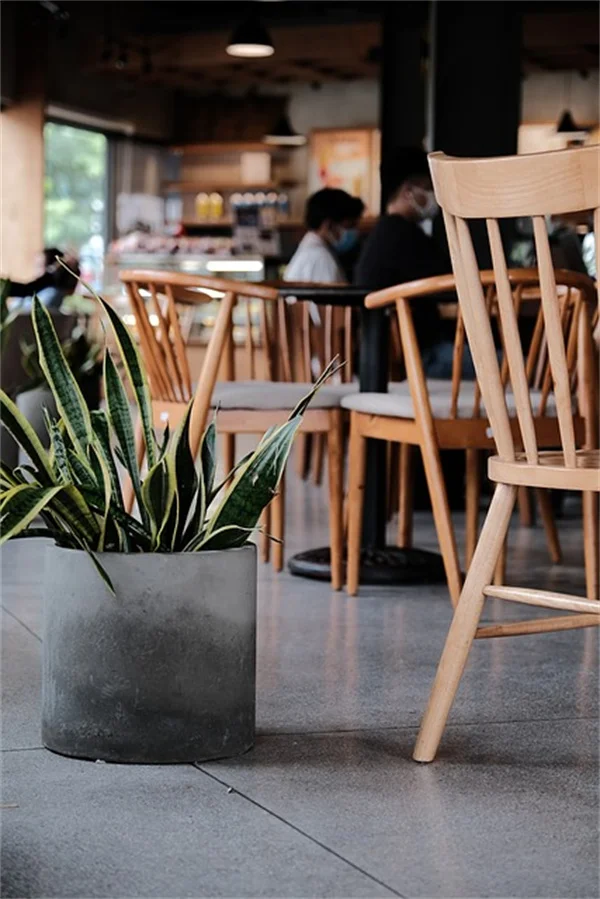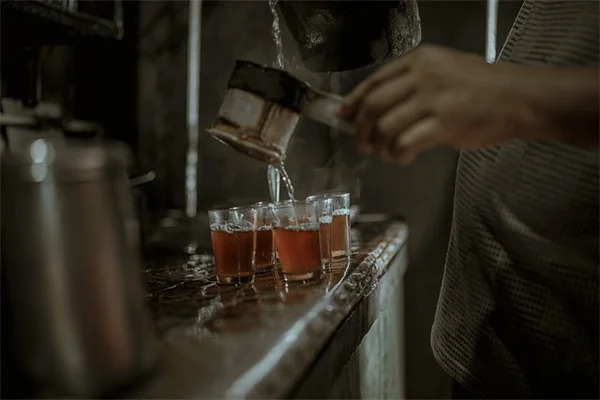Advertisement
Should you get routine cancer screenings? The answer is absolutely yes - and Dr. Mike Varshavski (better known as Doctor Mike to his 23 million followers) is on a mission to make sure you don't put it off. Here's the deal: early detection can mean the difference between a simple treatment and a life-or-death battle. I've seen firsthand how catching cancer early saves lives, and that's why we're breaking down everything you need to know about cancer screenings in plain English.You might be thinking I feel fine, why bother? But here's the cold hard truth: many cancers show no symptoms until it's too late. That's why screenings are so crucial - they catch problems before you even feel them. Doctor Mike lost his mom to leukemia, so he's not just spouting medical jargon - he's speaking from painful personal experience. The good news? Getting screened is easier than you think, and I'll show you exactly how to do it.
E.g. :Cell Phone Usage Linked to High Blood Pressure: What You Need to Know
- 1、Meet Dr. Mike - The Doc Who Wants to Save Your Life
- 2、The Pandemic Effect: What COVID Did to Our Health
- 3、Who's Most at Risk? (Spoiler: Maybe You)
- 4、Making Screenings Actually Doable
- 5、Your Action Plan for 2023
- 6、The Power of Prevention Beyond Screenings
- 7、The Mental Health Factor You're Ignoring
- 8、Environmental Factors You Can Control
- 9、Building Your Personal Prevention Plan
- 10、FAQs
Meet Dr. Mike - The Doc Who Wants to Save Your Life
Why a Social Media Doc Cares About Your Health
You know that feeling when your phone blows up with notifications? Well, imagine having 23 million followers like Dr. Mike Varshavski does. But here's the kicker - he's not posting dance challenges or makeup tutorials. This doctor is using his massive platform to talk about something that could literally save your life: cancer screenings.
Now I know what you're thinking - "Ugh, another doctor telling me what to do." But hear me out. Dr. Mike gets it. He lost his mom to leukemia, so this isn't just medical advice to him. It's personal. And that's why his message hits different. He's not some stuffy doc in a white coat - he's the guy who got named "Sexiest Doctor Alive" (yes, really!) but would rather talk about colonoscopies than his abs.
The Screening Situation You Need to Know
Let's get real for a second. When was the last time you thought about cancer screenings? If you're like most people, probably never - until now. But here's why you should care:
| Cancer Type | Pre-Pandemic Screening Rate | Current Screening Rate | Change |
|---|---|---|---|
| Breast Cancer | High | Down 25% | Big drop |
| Cervical Cancer | Medium | Way down | 6.8% decrease |
| Colorectal | Okay | Not great | 17.7% plunge |
See those numbers? That's not just statistics - that's potentially thousands of lives that could be saved with early detection. And the crazy part? Many of these screenings take less time than binge-watching your favorite show.
The Pandemic Effect: What COVID Did to Our Health
 Photos provided by pixabay
Photos provided by pixabay
How We Got Behind on Screenings
Remember when we were all wiping down groceries and wearing masks everywhere? Good times. But here's something you might not realize - while we were avoiding COVID, many of us were also avoiding life-saving cancer checks.
Between 2018-2020:- 4.47 million fewer women got cervical cancer screenings- 2.13 million fewer women got breast exams- Colonoscopy rates dropped like your phone battery at 3pm
Why This Matters Right Now
Here's the scary part - doctors are now finding more advanced cancers because people waited too long. It's like when you ignore a check engine light and suddenly your car won't start. Except instead of a tow truck, you're looking at tougher treatments and lower survival rates.
But here's the good news - it's not too late to get back on track. And Dr. Mike's got your back with simple ways to schedule screenings (more on that later).
Who's Most at Risk? (Spoiler: Maybe You)
It's Not Just About Family History
Think only older folks need to worry? Think again. Your risk depends on way more than just age. For example:
- Black men have higher prostate cancer risks- Smokers obviously need lung checks- Some gene mutations (like BRCA) increase breast cancer chances
But here's the kicker - 1 in 3 people will face cancer in their lifetime. That's like playing Russian roulette with your health, except screenings are the safety net.
 Photos provided by pixabay
Photos provided by pixabay
How We Got Behind on Screenings
Ever wonder why some communities get hit harder by cancer? It's not just bad luck. Systemic issues mean:
- Black women are 40% more likely to die from breast cancer- Native Americans often get diagnosed later- Latino communities face language barriers to care
This is why Dr. Mike's pushing for change - because healthcare shouldn't be a privilege. His Cancer Screen Week offers resources in English, Spanish, and Chinese to help everyone get the care they deserve.
Making Screenings Actually Doable
Where to Start When You're Overwhelmed
Okay, I get it - this all sounds scary. But what if I told you scheduling a screening could be easier than ordering takeout? Here's how:
1. Hit up CancerScreenWeek.org - it's like Yelp for cancer screenings2. Check with local clinics about free/low-cost options3. Ask your doc what tests you're due for (they'll know)
Pro Tips From the Docs
Dr. Mike and other experts suggest:
- Community centers often have health resources- Many screenings are covered by insurance (yes, even Medicare)- You can do stool tests at home now (way easier than colonoscopies)
The bottom line? There's no excuse good enough to skip screenings that could save your life. As Dr. Mike says, "Early detection isn't just better - it's everything."
Your Action Plan for 2023
 Photos provided by pixabay
Photos provided by pixabay
How We Got Behind on Screenings
Forget dry January or gym memberships you'll never use. This year, make a resolution that matters:
- Schedule one screening this month- Tell 3 friends to do the same- Follow @DoctorMike for no-BS health tips
Because here's the truth - your future self will thank you. And who knows? That 10-minute screening could give you decades more time with the people you love.
Final Thought From Dr. Mike
"Knowledge is power, but action is everything. Don't just read this and move on - pick up your phone right now and schedule that appointment. Your life is worth it."
So what are you waiting for? The best time to get screened was yesterday. The second best time is today.
The Power of Prevention Beyond Screenings
What Your Doctor Isn't Telling You About Daily Habits
You know those annoying health tips your doctor keeps repeating? Turns out they actually work. Simple lifestyle changes can reduce your cancer risk by up to 40% - that's better odds than most lottery tickets! But here's the catch - nobody's selling this prevention stuff in fancy commercials.
Let me break it down for you. That afternoon soda you love? Switching to water could lower your risk for at least 7 types of cancer. And that 30-minute walk you keep skipping? It's not just about fitting into your jeans - regular exercise literally changes how your cells behave. Your body has an amazing ability to heal itself when you give it the right tools.
The Kitchen Connection to Cancer Prevention
Ever notice how grandma's cooking always included weird colored vegetables? She was onto something. Those bright colors in foods like:
- Purple sweet potatoes
- Dark leafy greens
- Orange carrots
contain powerful cancer-fighting compounds. And no, popping a multivitamin doesn't count - your body absorbs nutrients best from real food. Pro tip: Frozen veggies work just as well when fresh isn't available!
The Mental Health Factor You're Ignoring
Stress: The Silent Cancer Accelerator
Did you know chronic stress can age your cells faster than chain smoking? When you're constantly stressed, your body pumps out hormones that create the perfect environment for cancer growth. And before you say "but my job is stressful," hear this:
Just 10 minutes of daily meditation can lower those damaging stress hormones. Or try laughter yoga (yes, it's real) - studies show genuine belly laughs boost immune function. Your mental health isn't separate from your physical health - they're two sides of the same coin.
Sleep: Your Free Cancer Prevention Tool
That late-night Netflix binge might be doing more harm than you think. While you sleep, your body produces melatonin - nature's most powerful antioxidant. But here's the kicker - artificial light from screens can reduce melatonin production by up to 85%.
Try this tonight:1. Ditch devices 1 hour before bed2. Keep your room cool and dark3. Establish a relaxing bedtime routine
Your future well-rested, cancer-fighting self will thank you!
Environmental Factors You Can Control
The Toxins Hiding in Plain Sight
You'd never drink from a lead pipe, but you might be exposing yourself to cancer-causing chemicals every day without realizing it. Common household items like:
| Product | Potential Risk | Safer Alternative |
|---|---|---|
| Non-stick pans | PFOA chemicals | Cast iron or ceramic |
| Air fresheners | Phthalates | Essential oil diffusers |
| Plastic containers | BPA/BPS | Glass or stainless steel |
Making these swaps is easier than you think - start with one change per month and build from there!
The Great Outdoors: Nature's Pharmacy
When was the last time you walked barefoot in grass? Sounds silly, but grounding (direct contact with the earth) has been shown to reduce inflammation - a key driver of cancer. And that fresh air you're breathing? It's packed with beneficial plant compounds called phytoncides that boost your immune system.
Try this weekend:- Take a 20-minute walk in a park- Have lunch outside instead of at your desk- Open windows to circulate fresh air at home
Your body evolved to thrive in nature - not trapped indoors under artificial light!
Building Your Personal Prevention Plan
Small Changes, Big Impact
You don't need to overhaul your entire life overnight. Consistent small improvements create lasting change. Start with these three easy steps:
1. Add one extra vegetable to each meal2. Take the stairs instead of the elevator3. Schedule "stress breaks" throughout your day
Remember - perfection isn't the goal. Showing up consistently for your health is what matters most.
The Buddy System for Better Health
Everything's more fun with friends - even cancer prevention! Find an accountability partner and:
- Swap healthy recipes- Try new workouts together- Remind each other about screenings
After all, what's better than living a long, healthy life? Sharing it with the people you love!
E.g. :Recommendation: Breast Cancer: Screening | United States ...
FAQs
Q: How often should I get cancer screenings?
A: The frequency depends on your age, gender, and risk factors, but here's a general guide: Most adults should get screened annually or every few years. For example, women over 40 typically need mammograms every 1-2 years, while colon cancer screenings start at 45 for most people. Here's the thing - your doctor can give you a personalized schedule based on your health history. I always tell my patients: "Don't guess - ask your doc what's right for you." Remember, early detection is key, so don't put it off because you're "too busy" or "feel fine." That's like waiting for your car to break down before changing the oil!
Q: Are cancer screenings really that important if I have no symptoms?
A: Yes, yes, a thousand times yes! Here's why: many deadly cancers show zero symptoms in early stages. By the time you notice something's wrong, the cancer may have progressed significantly. Think of screenings like your body's early warning system - they can spot trouble long before you feel it. Doctor Mike puts it perfectly: "Screenings aren't about how you feel today, they're about making sure you're still feeling great 20 years from now." I've seen patients whose lives were saved because a routine screening caught something they never would have noticed otherwise.
Q: How can I find affordable cancer screening options?
A: Great question! Many people avoid screenings because they're worried about cost, but there are plenty of affordable and even free options available. First, check out CancerScreenWeek.org - it's like a GPS for finding local screening centers. Many community health clinics offer low-cost services, and programs like the CDC's National Breast and Cervical Cancer Early Detection Program provide free screenings for those who qualify. Here's a pro tip: call your local hospital's financial aid office - they often have programs most people don't know about. As Doctor Mike says, "Your health is priceless, but getting screened shouldn't cost a fortune."
Q: What cancers should I be screened for based on my age?
A: Your screening needs change as you get older, so here's a quick cheat sheet: In your 20s-30s, focus on cervical cancer screenings (Pap smears). Starting at 40, women should add mammograms. At 45, both men and women need colon cancer checks. After 50, talk to your doc about prostate and lung cancer screenings if you have risk factors. But remember - these are just general guidelines. Your personal risk factors (like family history or lifestyle) might mean you need earlier or different screenings. That's why I always say: "When in doubt, check it out with your healthcare provider."
Q: How has COVID affected cancer screening rates?
A: The pandemic created what doctors call a "cancer screening crisis." Here's the scary truth: screening rates dropped by 25% or more for many cancers during COVID. We're now seeing the consequences - more advanced cancers being diagnosed later. Doctor Mike shared some sobering stats: "Colorectal screenings fell nearly 18%, while breast and cervical cancer checks dropped too." The good news? It's not too late to get back on track. Many clinics have safe protocols in place now, and some screenings (like stool tests) can even be done at home. As we say in medicine: "The best time to get screened was yesterday. The second best time is today."







